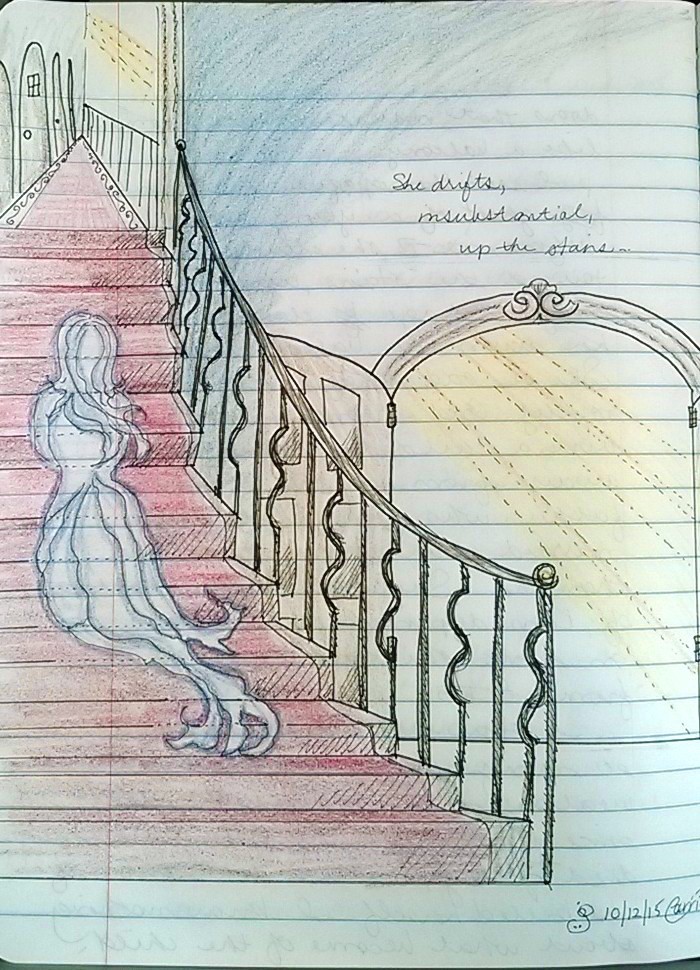If I stand very still, if I do not move, I can see back over the spill of decades, over lifetimes to this specific scene. A grand foyer, Victorian in style, seen as if through a hole in…time? The scene’s edges darken, obscured by shadow. But at the center, the view is bright and clear — a staircase sweeps upward on the left, with heavily ornamented wrought-iron railing; straight ahead, a carved and paneled entry stands with double doors flung wide, opening onto a sunlit two-story chamber. Everything — every nook and cranny, the walls and ceiling — is highly decorated…carved, painted, flocked, tiled, gilt. The opulence is striking. The staircase, thickly carpeted, leads upward, down a hall. A railing on the right overlooks the large, two-story chamber; doors line the left wall. Each door is heavy and dark with a polished brass knob and key-hole — and, disturbingly, a small barred window is inset upon each door’s face. I realize I am viewing an antique hospital; perhaps, an asylum.
Movement catches my attention — the opaque form of a woman. A ghost. Slowly, she drifts toward the stairs. My view narrows, focuses upon her vaporous shape and follows her closely. Up. Along the balconied hall. Past one door, then another, and another. She is grief-stricken, clutching diffuse hands to her sternum, weeping silently. Her sad history unfolds within me. She — young, naive, trusting; he — older, wealthy, arrogant. His gifts and flattery and promises of security — so persistent, so calculated. Over time, her resolve eroded. When their child was born, he had her locked away in this very hospital; he took the baby. Ultimately, she lost all.
Over and done. Swept into the dust of time’s passage. The young woman never recovered from her grief. The man died old and unrepentant, protected by his wealth and stature. What I cannot see, as I stand here, viewing this place and this scene, its history and edges obscured by grit and shadow — is what became of the child.

4 Comments
I read these dreams as though they appear real, so very touching.
They feel intensely real when I’m in them — almost like sensory overload. I’m glad that comes across!
For some reason this reminds me of a Walter de la Mare story.
De la Mare is actually on my “must read” list — I think I even gave my sister one of his novels last year (she’s a great fan of Poe). This dream definitely had a Gothic quality, as of Bronte, du Maurier, Seton, and Holt; not all of my dreams do. I feel that naming the dream “Melodrama” honors that particular sensibility. 🙂